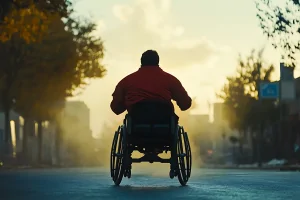Winning a VA claim for sleep apnea requires more than just a diagnosis; it demands strategic preparation, often with the assistance of accredited legal professionals and compelling evidence. With the VA’s revised rating schedule for sleep apnea likely taking effect in 2025, veterans may face a higher bar for proving disability and receiving benefits. This guide reveals practical tips on how to win a sleep apnea VA claim and secure the disability compensation you rightfully deserve.
Table of Contents
Understanding Sleep Apnea VA Ratings
Before diving into the strategies, it’s crucial to understand how the sleep disorder is rated by the VA. This is because your compensation level is based on how severe your symptoms are and the type of treatment they require.
Sleep Apnea Updated VA Rating Criteria
The VA has discussed updated sleep apnea ratings under Diagnostic Code 6847 – Respiratory System (38 CFR 4.97). Under the revised criteria, a CPAP prescription alone no longer qualifies a veteran for a 50% rating. Instead, the VA considers how effective the treatment is and the functional impairments the sleep disorder causes to the veteran’s life.
Here’s the projected future qualifying criteria for VA disability for sleep apnea:
- 0% Rating: The condition is diagnosed but asymptomatic, whether or not the veteran is receiving treatment.
- 10% or 30% Rating: Ongoing symptoms despite treatment, such as fatigue or disrupted sleep confirmed by a sleep study, though not severe enough to cause major impairment.
- 50% Rating: Treatment is not effective or cannot be used due to comorbid conditions like PTSD, claustrophobia, or physical limitations, but without evidence of damage to organs.
- 100% Rating: The sleep disorder has caused confirmed damage to vital organs such as the heart or lungs, and treatment cannot be used effectively due to comorbidities.
Veterans should ensure that thorough medical documentation and sleep studies are included in their VA claims to accurately reflect the severity and impact of their sleep issues.
10 Effective Tips to Win a Sleep Apnea Claim
Winning a sleep apnea claim can be difficult in many cases. Below are considerations veterans need to know about, from medical documentation to service connection, to help support their VA disability claim and improve their chances of securing the benefits they deserve.
Tip 1: Get an Official Diagnosis Through a Sleep Study
To win your VA claim for sleep apnea, the most important first step is receiving an official diagnosis through a sleep study (polysomnogram) from a qualified medical provider. The VA won’t grant service connection without clinical, objective proof, even if you experienced symptoms like fatigue or headaches during service. A current medical diagnosis is usually required to establish a service connection.
Whether conducted at a VA facility or private sleep lab, the sleep study records vital data like oxygen levels, breathing interruptions, and sleep stages to confirm obstructive, central, or complex (mixed) sleep apnea. Self-reported symptoms or vague notes from a doctor won’t suffice; a formal sleep study is usually required.
If your diagnosis came from a private provider, include all related documentation when filing your claim. Provide the full sleep study report, interpretation, CPAP prescription, apnea-hypopnea index (AHI) scores, and descriptions of symptoms like gasping or disrupted sleep. Without this medical evidence, your VA claim may be denied before it’s even considered. Ensuring your records are complete and clearly demonstrate a confirmed diagnosis is the foundation of a successful VA sleep apnea claim.
Tip 2: Request a Strong Nexus Letter to Prove Service Connection when applicable
To service-connect your sleep apnea VA disability, you must prove it’s “at least as likely as not” caused or worsened by your active duty or a service-connected condition. That’s where a nexus letter comes in. A nexus letter is an unbiased, independent medical opinion (IMO) that links your current diagnosis to your military service or another service-connected condition.
To support a sleep apnea claim, a licensed medical professional should write a VA nexus letter that will include:
- Doctor’s credentials and signature
- A current diagnosis confirmed through a sleep study (polysomnogram)
- Review of your medical and service records, including symptoms noted during military service
- Medical reasoning explaining how your military experience or another condition caused/aggravated your sleep disruption
- Supporting scientific rationale with reference to relevant clinical studies or medical literature
This expert opinion is the backbone of how to prove sleep apnea is service-connected, especially when the VA can’t find direct in-service documentation. It can be one of the most powerful pieces of evidence veterans can submit when filing secondary claims. You may consider asking your treating doctor or the VA for an opinion. It is important to note that you may receive a positive nexus at the VA C&P exam at no cost.
Prestige Veteran Medical Consulting specializes in strong and compelling nexus letters written by qualified medical professionals, offering trusted support for navigating VA claims.
Tip 3: Link Sleep Apnea to a Secondary Condition to Support Your Claim
If you are struggling to show how your condition developed during service, connect it to an existing service-connected disability when applicable. This strategy is often more successful in winning a disability claim because it ties your condition to something the VA already recognizes.
If a service-connected condition causes or aggravates your sleep apnea, you may be eligible to file a secondary claim, such as:
- Hypertension: Repeated oxygen deprivation from disturbed sleep strains the cardiovascular system, leading to high blood pressure.
- GERD: Nighttime acid reflux during sleep can contribute to airway obstruction.
- Obesity: Weight gain caused by service-connected conditions or medication side effects can make it difficult to breathe during sleep, increasing the risk of obstructive sleep apnea.
- Sinusitis or Rhinitis: Chronic nasal congestion and inflammation can worsen or cause OSA.
- Asthma: Nighttime airway inflammation and constriction from asthma can worsen sleep apnea symptoms, making breathing harder during sleep.
- Mental Health Disorders: Conditions like PTSD, anxiety, and depression disrupt normal sleep patterns through hypervigilance, insomnia, or medication side effects.
A nexus letter can be helpful at times in proving a secondary service connection, showing how your primary condition either caused or worsened your secondary apneic episodes. Claiming secondary conditions is one of the most effective strategies for veterans wondering how to service-connect sleep apnea years after discharge.
Tip 4: Consider obtaining a DBQ Form to Document Severity
The Disability Benefits Questionnaire (DBQ) for sleep apnea is a standardized VA form completed by a physician outlining the severity of your condition, the use of a CPAP machine, and limitations on daily activities.
Pair your DBQ with your nexus letter and diagnosis to create a comprehensive package. A DBQ shows how bad your condition is. A nexus letter shows why it’s connected to your service.
Including both Disability Benefits Questionnaire and the nexus letter in your file can make your claim “decision-ready,” potentially eliminating the need for a VA Compensation & Pension (C&P) exam. It provides the rater with exactly what they need to assign your sleep apnea VA rating.
Remember that you are never required to obtain these documents, and if the VA orders a C&P examination, they will conduct an exam using a DBQ form and provide a medical opinion.
Tip 5: Gather Lay Evidence and Buddy Statements to Support Your Case
Even with medical records, veterans often need lay evidence to fill in gaps, especially if the VA disability wasn’t diagnosed until after service. Lay evidence from yourself or others who witnessed your sleep apnea symptoms can help bridge the gap between your service and your diagnosis, strengthening the connection to your time in uniform.
Statements to provide in your sleep apnea VA claim:
- Your own Statement in Support of Claim (VA Form 21-4138), detailing symptoms like loud snoring, daytime sleepiness, and breathing disruptions during sleep.
- Buddy letters from fellow service members or supervisors who observed you falling asleep on duty or showing signs of fatigue, irritability, or trouble concentrating during duty.
- A spouse’s statement describing snoring, gasping, or stopping breathing during sleep.
These personal accounts help prove that your apneic episodes began or worsened during service, even if not formally documented.
Veterans often use VA Form 21-10210 for third-party witness statements. Lay evidence can help connect in-service symptoms to your current diagnosis, particularly helpful for claims based on direct service connection.
Tip 6: Emphasize Comorbid Conditions and Organ Impact
Under the VA’s updated 2025 rating criteria, the highest ratings for sleep apnea (50% and 100%) depend not only on treatment failure but also on how the condition contributes to broader health complications.
To strengthen your claim, here are some effective steps:
- Thoroughly document any comorbid conditions such as hypertension, heart disease, stroke, diabetes, or chronic respiratory issues that are caused or worsened by your sleep-disordered breathing.
- Document the impact on the lungs and heart, if experiencing symptoms like elevated blood pressure, heart arrhythmias, shortness of breath, or reduced lung function.
- Include specialist opinions and VA or private treatment records linking your sleep apnea to systemic complications.
- If you have been hospitalized, require oxygen therapy, or continue to have severe symptoms despite CPAP use, make sure this is clearly documented.
Demonstrating that sleep apnea is causing or accelerating organ damage or overall health decline can support a higher VA rating.
Tip 7: Consider Pursuing TDIU if Sleep Apnea Affects Your Ability to Work
If your service-connected sleep apnea limits your ability to maintain substantially gainful employment, you may be eligible for Total Disability based on Individual Unemployability (TDIU).
Common symptoms like persistent fatigue, poor concentration, and excessive daytime sleepiness, all of which can impair job performance. These challenges are worsened if you require a CPAP machine or suffer from related conditions such as PTSD, sinusitis, or cardiovascular issues.
You can still receive compensation at the 100% level through TDIU if:
- You have a single service-connected disability rated at least 60%, or
- You have multiple service-connected disabilities with a combined rating of 70% and one disability rated at 40% or higher.
- It is impossible to hold substantially gainful employment due to your service-connected disabilities.
To support your case:
- Review VA Form 21-8940 (Application for TDIU benefits).
- Gather work history showing inability to stay employed.
- Gather medical records and/or a vocational expert opinion stating your limitations.
TDIU grants compensation at a 100% rate, even if your schedular or combined rating is lower. It’s an effective strategy to win a sleep apnea VA claim for veterans with multiple debilitating conditions.
Tip 8: Track the Severity of Symptoms and Impact on Daily Life
Your final rating doesn’t just depend on diagnosis, it depends on how sleep-disordered breathing affects your quality of life. That’s why it’s critical to document your symptoms thoroughly.
Veterans can maintain a journal noting issues like:
- Daytime hypersomnolence (falling asleep while driving, meetings, at work, etc.)
- Trouble concentrating, memory lapses, or mood swings due to poor sleep
- Frequent headaches, dry mouth upon waking, or the inability to maintain restful sleep
- Reliance on CPAP or other breathing assistance devices
- Limitations with treatment, such as inability to use CPAP or other devices due to psychological barriers or physical discomfort
- Ineffectiveness of treatment, such as continued fatigue or worsening symptoms
Ask your doctor to record these symptoms during appointments. The more you demonstrate the severity and daily impact of your sleep issues, the more you may support your claim for a 30%, 50%, or 100% disability rating.
Tip 9: Appeal Strategically if Your Claim Is Denied with the help of accredited legal resources.
Being denied a VA sleep apnea claim is frustrating, but common. More than one-third of claims are denied, often due to avoidable reasons like insufficient evidence or a weak nexus. If this happens, you have three appeal options under the Appeals Modernization Act (AMA):
- Supplemental Claim: Submit new and relevant evidence, such as a nexus letter, DBQ, or buddy statement that the VA didn’t consider.
- Higher-Level Review (HLR): You can request a senior VA adjudicator to review the disability claim, especially if you believe the VA made a clear mistake and no new evidence is needed.
- Board Appeal: You have the option to request a review by a Veterans Law Judge, present additional evidence, or schedule a hearing to further support your disability benefits case.
The best appeal strategy depends on why your claim was denied. Veterans should consider working with accredited legal professionals when possible to assist with navigating the appeals process.
Tip 10: File as Early as Possible to Protect Your Effective Date
Filing your VA claim as soon as you are diagnosed with sleep apnea matters. Your filing date sets your effective date, which determines how much back pay and future compensation you may receive.
While gathering evidence, many veterans submit an “intent to file” to lock in the earliest possible date, as this gives them one year to collect medical records, nexus letters, and supporting statements without delaying their potential benefits.
Consider reaching out to VA-accredited attorneys, veterans service organizations (VSOs), or claims agents who are familiar with the VA system and can help navigate your case.
Case Study: Veteran Wins Sleep Apnea Claim with PTSD Complication
After 10 years in the Navy, a veteran began suffering from extreme fatigue, poor concentration, and loud snoring. A private sleep study confirmed moderate obstructive sleep apnea. Though prescribed a CPAP, the veteran couldn’t tolerate it due to severe claustrophobia tied to his service-connected PTSD.
Instead of filing based on the CPAP use alone, he submitted a secondary service connection claim, supported by a detailed nexus letter from a psychologist linking his PTSD to his inability to tolerate treatment. He also included a DBQ and statements from his spouse about nightly breathing episodes. The VA granted a 50% rating, recognizing the functional limitations caused by his untreated sleep apnea.
Final Thoughts
Winning a VA claim for sleep apnea can feel daunting, but with the right evidence and guidance, it’s entirely possible to succeed. Supported by strong evidence, clear documentation, and an understanding of how your sleep disruption affects your life, you can secure a favorable outcome. If your initial claim gets denied, don’t lose hope, as many veterans win on appeal with the right guidance and advocacy from accredited legal professionals. Take your time, collect strong supporting evidence, and remain determined. Remember, the disability compensation you are seeking is not a favor, it’s something you have earned.
FAQS
Is it challenging to establish VA disability for sleep apnea?
Yes, it can be challenging without strong evidence like a sleep study, a nexus letter at times, and documentation linking your condition to military service or a service-connected disability.
How to prepare the best VA claim for my service-connected sleep apnea?
Prepare by securing a confirmed sleep apnea diagnosis, obtaining a detailed nexus letter when applicable, submitting a completed DBQ if your doctor is willing to complete it, and including lay evidence and supporting documentation that links your condition to service.
How can I pass a sleep apnea test for VA disability benefits?
You don’t need to “pass” the test; instead, undergo a proper sleep study (polysomnogram) that objectively confirms the diagnosis necessary for your VA claim.
How does the VA prove sleep apnea?
The VA proves through medical evidence, including a sleep study report, a nexus linking the condition to service, and documentation of symptoms and treatment like CPAP usage when necessary.
What evidence do I need to connect my sleep apnea to military service?
Connect sleep apnea to military service through a nexus letter from a qualified medical professional and, if applicable, by linking it secondarily to existing service-connected conditions such as PTSD, asthma, or cardiovascular issues.
Also read: The Role of a Nexus Letter for Obstructive Sleep Apnea (OSA) Claims.
At Prestige Veteran Medical Consulting, a veteran-owned company, we specialize in Independent Medical Opinions (IMOs) known as Nexus letters.
Our purpose is to empower YOU, the veteran, to take charge of your medical evidence and provide you with valuable educational tools and research to guide you on your journey.
Understanding the unique challenges veterans face, our commitment lies in delivering exceptional service and support.
Leveraging an extensive network of licensed independent medical professionals, all well-versed in the medical professional aspects of the VA claims process, we review the necessary medical evidence to incorporate in our reports related to your VA Disability Claim.
Prestige Veteran Medical Consulting is not a law firm, accredited claims agent, or affiliated with the Veterans Administration or Veterans Services Organizations. However, we are happy to discuss your case with your accredited VA legal professional.















